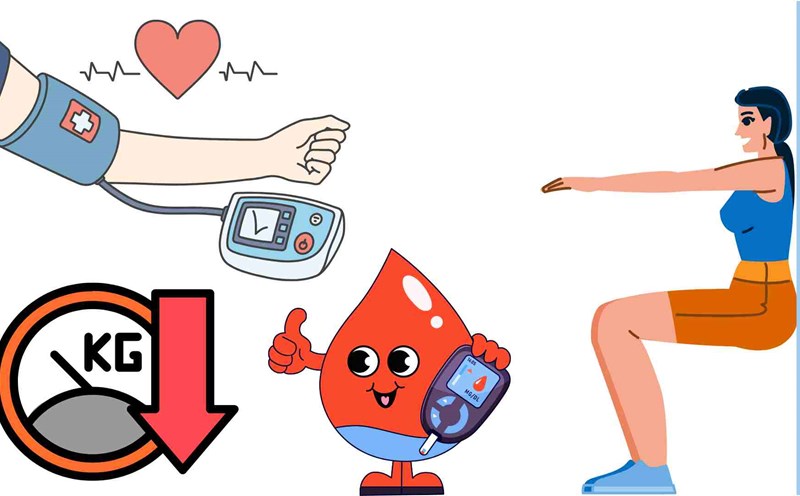Fruits, nuts and vegetables: Simple but effective choice
Many studies have shown that adding the right foods to your daily meals can have a direct impact on blood pressure. In particular, blueberries, pears, watermelon and lentils are considered easy-to-use foods, bringing clear results.
Blueberries contain many anthocyanin compounds that help improve blood vessel function. One study shows that eating one cup of blueberries per week can reduce the risk of high blood pressure. Pears also show positive effects. A study published in Food and Function concluded that eating pears daily for 12 weeks helps lower Cardiovascular blood pressure in people with metabolic syndrome.
Watermelon is a familiar fruit but is rich in potassium, lycopene and the amino acid L-citrulline, which have been shown to reduce blood pressure in some groups of people. In addition, lentils, which are rich in potassium and magnesium, are considered a "popular" food source but are beneficial for the heart. Replacing starchy dishes with lentils can significantly reduce blood pressure.
In addition, walnuts are also worthy of being on the list. A study in Nutrition, Metabolism and Cardiovascular Diseases shows that people who eat walnuts regularly have lower cardiopulmonary blood pressure and a slimmer waist.
Nutritious drinks and foods for the heart
Not only fruits and nuts, other familiar dishes such as orange juice, fatty fish and yogurt also help maintain healthy blood pressure.
Whole orange juice provides a lot of potassium and hesperidin compounds, a natural flavonoid in the tangerine family. In a clinical trial, drinking 500 ml of 100% orange juice per day helped people with high blood pressure reduce an average of 6.35 mmHg.
Fatty fish such as salmon and sardines are rich in omega-3, which can reduce inflammation and regulate blood pressure. The American Heart Association recommends eating seafood at least twice a week to reduce the risk of heart disease.
Yogurt is also a rich source of calcium and potassium. An international study shows that people who eat three servings of milk per day have a 13% lower risk of high blood pressure than those who consume less. When choosing yogurt, you should prioritize low-sugar or sugar-free, which can be combined with fresh fruit to enhance the flavor.
Dr. Lawrence J. Appel, Director of the Center for Disease Control and Prevention of Johns Hopkins (USA), emphasized: "Fods rich in potassium, magnesium and antioxidants can have a strong impact on blood pressure, sometimes as effective as anti-hypertensive drugs in the early stages".
The secret to keeping blood pressure stable from nature
Instead of starting with medicine, adjusting your diet with healthy foods is a sustainable step. Fresh fruits, nuts, fatty fish, yogurt and vegetables not only support blood pressure but also improve overall health.
Healthy blood pressure is the "golden key" to preventing cardiovascular disease, stroke and kidney failure. So, start with your daily meals to protect your own heart.











